When it comes to skincare buzzwords, ‘retinol’ and ‘retinoids’ frequently top the list.
But what exactly are these substances?
Simply put, retinol is a type of retinoid. Retinoids are a class of compounds derived from vitamin A, one of the body’s key nutrients for cell growth and health.
How do Retinol and Retinoids Benefit the Skin?
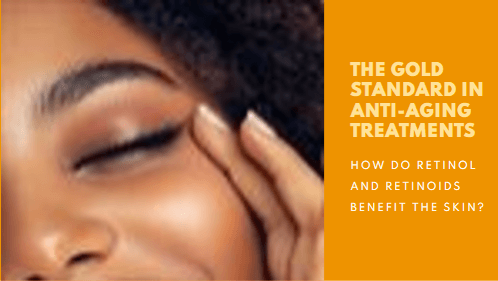
Retinol and its stronger relatives, retinoids, are widely recognized in the skincare industry for their transformative effects on the skin.
They’re often referred to as the gold standard in anti-aging treatments and are praised for their ability to:
- reduce fine lines,
- improve texture,
- and even out skin tone.
A Brief History of Retinol and Retinoids in Skincare
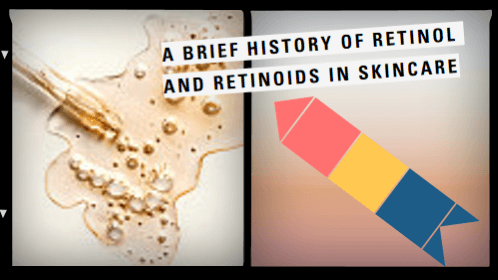
Their history in skincare dates back to the 1970s when dermatologists began using them to treat acne.
It wasn’t long before the additional age-defying benefits of retinoids were realized, leading to a revolution in topical treatments for the skin.
Understanding the differences between retinol and retinoids can seem overwhelming at first. Questions might bubble up: What should I use? Will it be too strong for my skin? How are they different if they seem so similar?
This article brings clarity to these questions by distinguishing the subtleties between retinol and retinoids, their uses, and how to choose the appropriate treatment for your skincare needs.
Dissecting the Differences: Retinol Vs. Retinoids
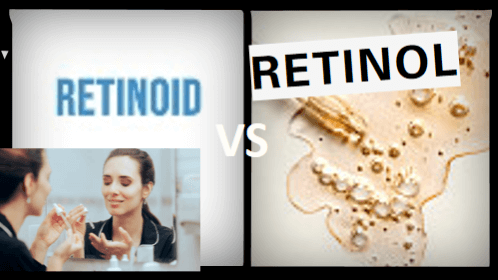
Understanding the distinction between retinol and retinoids is crucial if you’re considering incorporating them into your skincare routine.
The Chemistry Behind Retinol and Retinoids

Let’s start with chemistry: both retinol and retinoids are derivatives of vitamin A.
However, their chemical structures are not identical, which is where we begin to see their differences in potency and function.
Different Types and Strengths: Which One Should You Use?
Retinoid
Retinoids is a broad term that encompasses all vitamin A derivatives used in skin care, including retinol.
Retinol
Retinol is a specific type of retinoid that is commonly found in over-the-counter (OTC) products. It’s milder and usually well-tolerated by most skin types.
When you apply retinol to your skin, it undergoes a conversion process where;
- It first converts to retinaldehyde
- and then to retinoic acid, the active form that can be readily used by your skin cells.
This transition means retinol is less potent than prescription retinoids – which are already in an active form and do not require conversion.
Other types of Retinoids
There’s a variety of retinoids you’ll encounter, including;
- the potent tretinoin, often prescribed for more severe signs of aging or acne,
- and adapalene, another type that can be found OTC or by prescription based on the concentration.
The stronger the retinoid, the more likely it is to cause irritation, which is why many start with retinol and work their way up as their skin builds tolerance.
Differences in Effectiveness and Safety: Why OTC or Prescription?
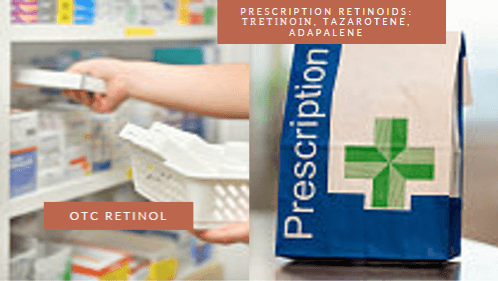
While retinol is readily available in OTC products in serums, creams, and lotions, prescription retinoids like tretinoin, tazarotene, or adapalene require a visit to the dermatologist.
Their HIGHER concentration makes them more effective for significant skin concerns but also means a higher chance of SIDE EFFECTS like;
- peeling,
- redness,
- and dryness.
What next?
Now that you’ve grasped the key differences between retinol and retinoids, you might wonder how to pick the right one for you. That’s what we’ll tackle in the next section so you can make an informed decision and incorporate these powerful ingredients into your regime safely and effectively.
Choosing the Right Option for Your Skin: Retinol and Retinoids 101

I understand that navigating the world of skincare ingredients can be tricky, especially when they sound so alike. It’s essential for you to know how to pick between retinol and retinoids to suit your unique skin needs.
If you're considering choosing and incorporating one of these into your regimen, start with a clear understanding of your skin type and concerns.
You’ll want to ask yourself what you’re aiming to address.
For example, are you aiming to address any of the following?
- fine lines,
- acne,
- uneven skin tone,
- or perhaps you’re looking for a product to improve overall skin texture and radiance.
Starting with Retinol
For most beginners, retinol is a suitable starting point.
It’s gentler, available over the counter, and comes in various formulations that let you ease into the retinoid world without the potential harshness of stronger compounds.
Building Tolerance and Avoiding Irritation
Initiating with the lowest concentration and gradually increasing it allows your skin to build tolerance.
Monitor how your skin responds and increase the frequency and strength accordingly.
Always use retinol at night and coherence with sunscreen during the day, as it can increase sensitivity to sun exposure.
Switch to Prescription-Strength Retinoids
Crossing over to prescription-strength retinoids is usually the next step for those who’ve mastered retinol without irritation and seek more potent anti-aging or acne-fighting effects.
However, this should be done after consulting with a dermatologist, who can provide tailored advice and the appropriate prescription.
Choosing Quality Products
Quality is critical when choosing these products.
Opt for reputable brands and formulations that protect the stability and efficacy of retinol and retinoids.
Packaging matters too; look for opaque, airtight containers that shield the active ingredients from light and air.
Being Patient and Persistent
Remember, retinol and retinoids are marathons, not sprints.
Patience and persistence often lead to visible improvements over time.
Take note that while starting with retinol or retinoids can be a game-changer for your skin, it’s just one aspect of a comprehensive skincare routine.
Balance it with nourishing moisturizers, antioxidants, and other ingredients that support skin health.
Personalizing Your Skincare Journey
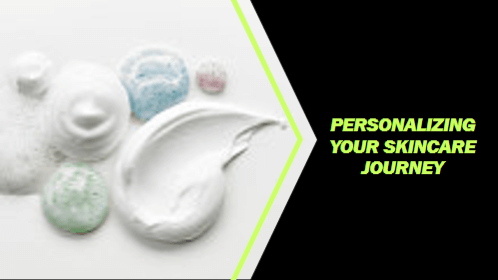
Skin care is deeply personal and varies for everyone. Your journey may involve trial and error, but with thoughtfulness and proper guidance, it can lead to significant benefits for your skin’s appearance and health.
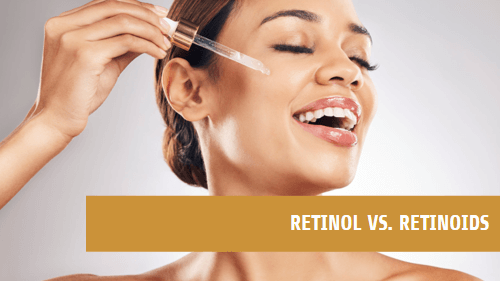
Your comparison of retinol vs. retinoids is incredibly informative. Understanding the differences between these skincare ingredients is crucial for making informed decisions about our skincare routines. Have you personally experienced any specific benefits or drawbacks with either retinol or retinoids? I’ve been considering incorporating one into my routine but haven’t decided which would be best for my skin type.
It’s fascinating to learn about the varying potency and formulations of retinol and retinoids, and how they can address different skincare concerns. Your explanation about the potential side effects and the importance of starting with lower concentrations is especially helpful for newcomers. How do you recommend integrating these products into a skincare regimen, particularly for those with sensitive skin? Your insights would be greatly appreciated. Thank you for providing clarity on this often confusing topic!
Hi Pasindu,
Thank you for your kind words and thoughtful comment. I’m glad you found the article informative and helpful.
I have personally used both retinol and retinoids in the past, and I can say that they have improved my skin texture, tone, and elasticity. However, I also experienced some irritation and dryness when I first started using them, so I had to be careful with the frequency and dosage.
I believe that the best way to integrate these products into your skincare regimen is to start with a gentle retinol product, use it once or twice a week at night, and apply a moisturizer and then a sunscreen during the day. Then, you can gradually increase the strength and frequency as your skin adapts.
If you have sensitive skin, you might want to consult with a dermatologist before using any retinoid product, as they can advise you on the best option for your skin type and condition. I hope this helps you make an informed decision and achieve your skincare goals. Thank you for reading and commenting!
Cheers!
Hi Martins,
The article effectively breaks down complex concepts into understandable language, making it accessible to readers who may not be familiar with skincare terminology like I am.
The article follows a logical progression, starting with an introduction to retinol and retinoids, followed by explanations of their benefits, chemistry, different types, effectiveness, and safety considerations, and finally, guidance on choosing the right option for one’s skin which helped me a lot to find the right product, especially for my skin type(I have a really sensitive skin).
The article offers practical advice, such as starting with retinol for beginners, gradually increasing strength, using sunscreen, consulting a dermatologist for prescription-strength retinoids, choosing quality products, being patient, and balancing skincare routine with other beneficial ingredients.
I am thankful for such an informative blog article!
Now I have a question for you:
Which product has helped you the most in combating acne?
Hi Matthias!
I appreciate your thoughtful comment on the article. It’s fantastic that the content resonated with you, especially considering how complex skincare concepts have been broken down into digestible language.
As someone with sensitive skin, understanding the nuances of retinol and retinoids in a well-established skincare routine can be a game-changer.
Now, let’s talk about my personal experience. I’ve dabbled in a few retinol-based products myself, and I agree – they can work like magic! When it comes to combating acne, finding the right product is crucial. Here are a couple of standout options:
1. The Ordinary Retinol 1% in Squalane Anhydrous Serum:
– Price: As low as $10
– Focus: Anti-aging
– Why I Like It: The Ordinary is known for its straightforward, no-frills approach. This retinol serum is gentle yet effective, making it a great starting point for beginners.
2. Drunk Elephant A-Passioni Retinol Cream:
– Price: Up to $73
– Focus: Anti-aging
– Why I Like It: Drunk Elephant products are a bit of a splurge, but they deliver results. The A-Passioni cream combines retinol with other skin-loving ingredients, and it’s a luxurious treat for your skin.
However, if acne is your main concern, and you’ve tried products like AcneFree Adapalene Gel 0.1% (which is a retinoid-based anti-acne gel) without success, it might be time to consult a dermatologist. They can guide you toward prescription-strength retinoids or create a personalized plan to tackle your acne effectively.
Remember, patience and avoiding common mistakes are important when dealing with skincare issues. Consistency and gradual adjustments are essential. Good luck on your skincare journey!
Cheers
PS
As an Amazon associate, I appreciate your support and earn from qualifying purchases through my affiliate links in this reply, at NO extra cost to you (full disclosure..). It enables me to continue my research and create valuable content for my readers. If you have any more questions or need further assistance, feel free to ask!
I have used retinol for many years. It’s very powerful stuff. I find that it really helps with making skin more even, but it does irritate my skin just a bit.
My skin gets a little bit of itchiness, but it does subside.
I think retinoids are stronger.
Aren’t those usually prescription grade? I think that form would be too strong for my sensitive skin.
Hi Lynn,
You’re absolutely correct! When it comes to retinoids, tretinoin and tazarotene require a doctor’s prescription. However, adapalene has a more flexible availability.
You can find adapalene in two forms: over-the-counter (OTC) and prescription-only. The OTC version typically has a concentration of up to 0.1%, while the stronger 0.3% concentration is available by prescription.
Additionally, other OTC retinoids, such as retinyl esters, retinol, and retinaldehyde, are also commonly accessible. Among these, retinaldehyde is considered the most potent. 🌟
Remember to choose the right retinoid based on your skin’s sensitivity and needs. If you have any further questions, feel free to ask!
Cheers!!